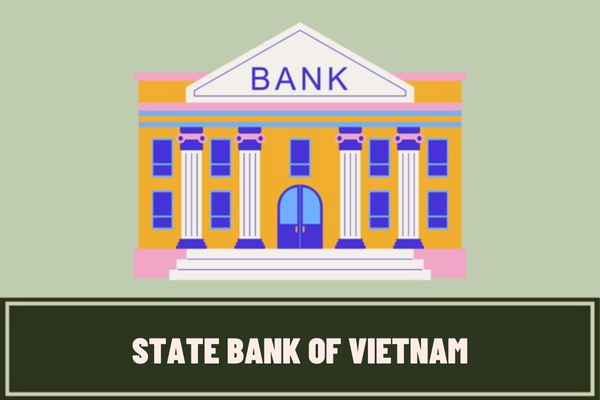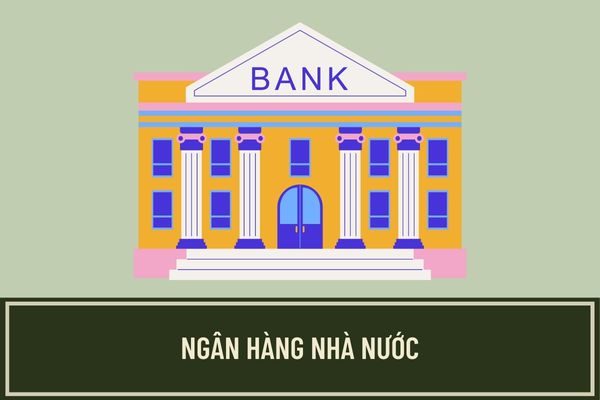Is the Governor of the State Bank of Vietnam a cabinet member? How does the State Bank of Vietnam refinance credit institutions?
Is the Governor of the State Bank of Vietnam a cabinet member?
Pursuant to Article 8 of the 2010 Law on the State Bank of Vietnam stipulating this content as follows:
Leading and managing the State Bank
1. The Governor of the State Bank is a cabinet member, the head and leader of the State Bank who shall take responsibility before the Prime Minister and the National Assembly for the state management in the monetary and banking sector.
...
Thus, the Governor of the State Bank is a cabinet member, the head and leader of the State Bank who shall take responsibility before the Prime Minister and the National Assembly for the state management in the monetary and banking sector.
Currently, the Governor of the State Bank of Vietnam is Ms. Nguyen Thi Hong.
At the same time, the Governor of the State Bank has the following tasks and powers:
- To organize and direct the implementation of the national monetary policy according to his/ her competence:
- To organize and direct the performance of tasks and the exercise of powers of the State Bank according to this Law and other relevant laws;
- To act as the legal representative of the State Bank.

Is the Governor of the State Bank of Vietnam a cabinet member? How does the State Bank of Vietnam refinance credit institutions?
How does the State Bank of Vietnam refinance credit institutions?
Pursuant to Article 11 of the 2010 Law on the State Bank of Vietnam stipulating refinancing as follows:
Re-financing
1. Re-financing means a form of extending credits by the State Bank, aiming to provide short-term capital and payment instruments for credit institutions.
2. The State Bank shall provide for and effect the re-financing to credit institutions in the following forms:
a/ Granting loans secured by the pledge of valuable papers;
b/ Discounting valuable papers;
c/ Other forms.
Thus, the State Bank stipulates and implements the refinancing of credit institutions in the following forms:
- Loans secured by pledging valuable papers;
- Discounting valuable papers;
- Other forms of refinancing.
What is the current refinancing interest rate of the State Bank of Vietnam?
Pursuant to Article 12 of the 2010 Law on the State Bank of Vietnam stipulating the refinancing interest rate as follows:
Interest rates
1. The Stale Bank shall announce the re¬financing interest rate, prime interest rate and other interest rates to serve the regulation of the monetary policy and the fight against usury.
2. In case abnormal developments are seen in the monetary market, the State Bank shall provide for a mechanism for regulating interest rates applicable to credit institutions in their relations with others and their clients and in other credit relations.
Specifically, in Decision No. 313/QD-NHNN in 2023, the State Bank stipulates the refinancing interest rate of the State Bank of Vietnam as follows:
Regulations on interest rates of the State Bank of Vietnam are as follows:
1. Refinancing interest rate: 6.0%/year.
Thus, the refinancing interest rate for operating monetary policy and combating usury announced by the State Bank is 6%/year.
For what purposes does the State Bank of Vietnam refinance commercial banks?
Pursuant to Article 4 of Circular No. 24/2019/TT-NHNN, the State Bank of Vietnam refinances loans in the form of on-lending on credit institution’s credit-related documents to meet the following purposes:
- Supporting credit institutions in paying deposits to personal and corporate customers (including other credit institutions, foreign bank branches), repaying borrowed funds to other credit institutions or foreign bank branches (hereinafter referred to as liquidity support).
- Providing financial support for loans granted to industries or sectors that Government’s Decrees prescribe that SBV provides with support policies through monetary policy tools (hereinafter referred to as loan support for promoted sectors or industries).
Previously, on March 7, 2023, the Government issued Resolution No. 31/NQ-CP in 2023 on the regular Government meeting in February 2023.
According to that, the Government assigned the State Bank of Vietnam to assume the prime responsibility for, and coordinate with agencies and localities in, operating monetary policy instruments firmly, proactively, flexibly and effectively; closely and synchronously coordinate with fiscal and other policies, contributing to maintaining macroeconomic stability, controlling inflation, stabilizing money and foreign exchange markets, and promoting growth.
At the same time, it is required to reduce the lending interest rate, increase the access to capital of people and businesses, and ensure a reasonable and effective interest rate and in line with the requirements of inflation control.
LawNet
